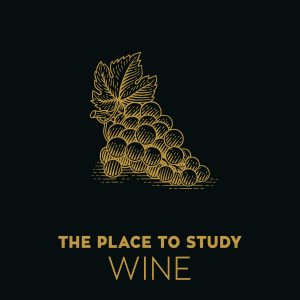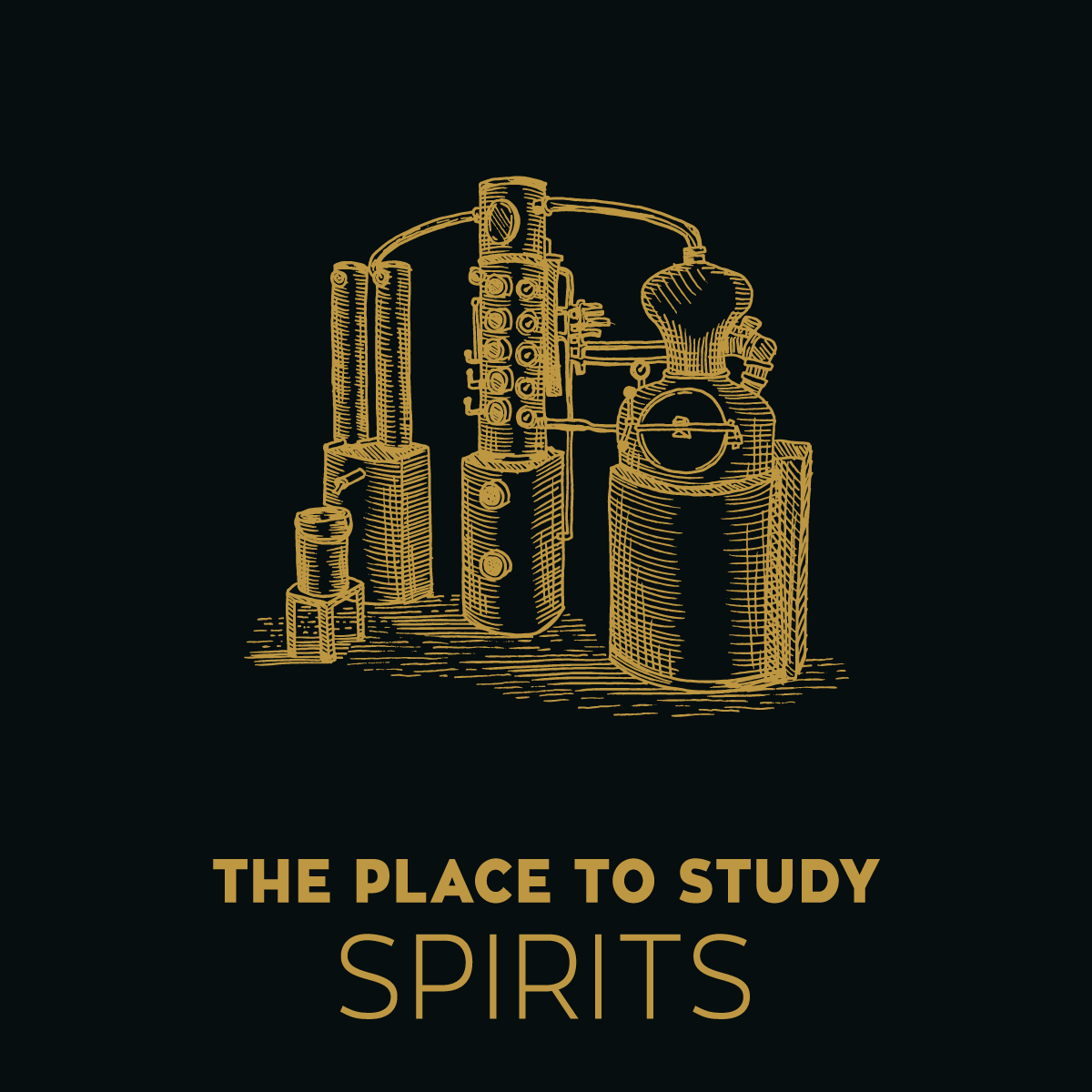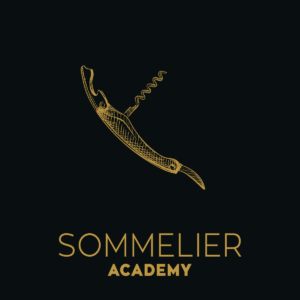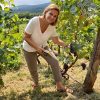WSG Spanish Wine Scholar ONLINE
€907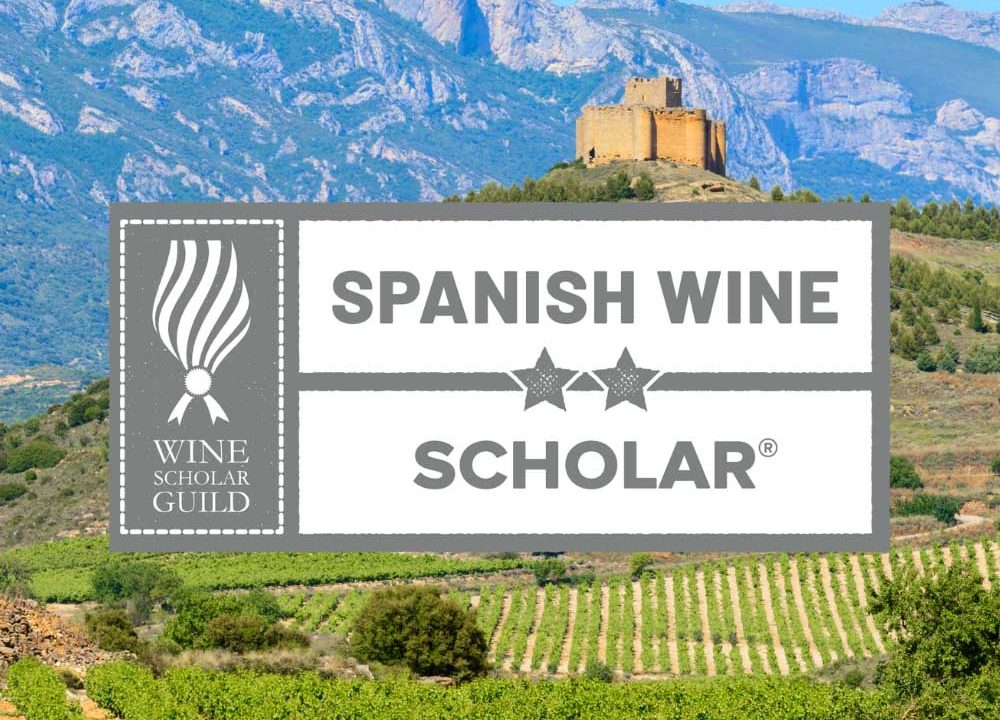
About this course
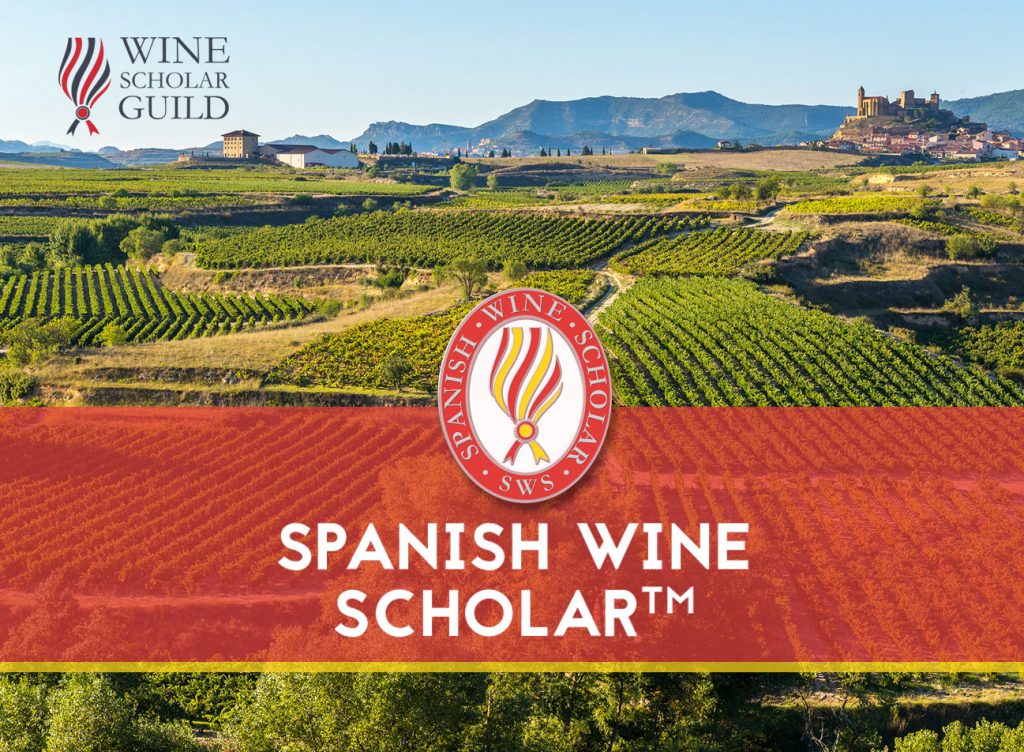
or Installments
The selection of installments reshapes the final value of the fees and the number of installments is applied at the completion of your order, during Checkout.
! There is an added shipping, bottling and packaging fee for the 36 samples included in this course, which is calculated at check-out depending on the shipping address.
Study directly with America through WSPC and specialize in each of the largest wine producing countries: France, Italy, Spain. Vertical studies of the wines of Spain.
About the course
WSG promotes vertical learning and specializes in the in-depth analysis of the relative country. The programmes cover each area thoroughly, analyzing the area’s viticulture, the viticultural and oenological practices, the varieties, the topography, the climate, the soil, the history and legislation.
This in-depth analysis allows WSPG to examine rare regions within each country, tasting typical wine from all regions, many of which are in fact extremely rare!
MORE
The WSG Spanish WINE SCHOLAR is aimed at:
- Students completing WSET Diploma, or WSET Diploma graduates may specialize in any country they wish investing in in-depth learning.
- Students completing WSET Level 3 Award in Wines/ or graduates of WSET Level 3 Award in Wines now have the opportunity to specialize in each country and obtain the American certification!
- Students who qualify for the Court of Master Sommeliers programme, have a better chance of obtaining the coveted Master Sommelier (MS) title if they are also enrolled in the WSG programme.
- Those who work in the wine industry or trade in the broader restaurant business, and those who are interested in pursuing a career as a Sommelier.
However, acquiring one or all of the WSG accreditations is not only a privilege for professionals but is also open to consumers, where wine, and the in-depth knowledge of wine, is for them more than just a hobby.
In total the duration of this educational programme is 19 hours of classes and exams. It is taught in Greek and the textbooks and the examination are in English.
Results are announced in 6-8 working weeks from the examination date.
Successful completion of the exams is a necessary prerequisite for obtaining the American Certification.
Study Programme and curriculum
WSG Spanish WINE SCHOLAR
The Spanish Wine Scholar™ program presents each Spanish wine region as an integrated whole by explaining the impact of history, the significance of geological events, the importance of topographical markers and the influence of climatic factors on the wine in the glass. No topic is discussed in isolation in order to give students a working knowledge of the material at hand.
Fundamentals:
In order for Spanish Wine Scholar candidates to study the wine regions of Spain from a position of strength, Chapter One covers Spanish wine history, wine laws, geography, climate, grape varieties, viticulture and winemaking in depth. It merits reading, even by advanced students of wine, as much has changed, especially with regard to wine law and the new research on grape vine origins.
Green Spain:
Spain is normally associated with the production of red wine, but the four regions comprising Green Spain—Galicia, Cantabria, Asturias, and País Vasco—craft some of Spain’s most interesting and unique whites. Local grapes such as Albariño, Godello, Treixadura, and Hondarribi Zuri stand in the spotlight, with the exciting red variety, Mencía, moving ever closer to center stage. This dynamic region redefines the preconceptions of what Spain has to offer the global wine market.
The Duero River Valley:
The region of Castilla y León occupies one-fifth of mainland Spain and is home to some of the country’s top wine growing areas such as Ribera del Duero, Rueda and Toro. This is a high-elevation, high-quality production area that experiences extreme seasonal temperature variations. In fact, an old Castilian saying states that the year is comprised of nine months of winter and three months of hell. Yet Tempranillo thrives within this hostile climate—and it produces some of Spain’s most esteemed reds.
La Rioja:
Rioja’s wine culture represents a composite of tradition and modernity. Rioja was one of Spain’s first demarcated wine regions yet it continues to reinvent itself. It has set itself apart as one of the world’s greatest wine-producing areas and has maintained that allure for centuries. It is largely responsible for the growth of Spain’s wine reputation around the wine world; it is also the country’s most recognizable wine region by consumers around the globe. Find out why!
The Ebro River Valley:
The Ebro River Valley is the birthplace of Garnacha. Wine growing areas such as Navarra, Cariñena, Campo de Borja, and Calatayud are garnering international fame for what is done with this grape. The pure versatility of Garnacha has everyone talking. From rosés to old vine reds, from single varietal to blend, Garnacha has elevated itself from workhorse to thoroughbred. And the world is watching. The Ebro River Valley has also distinguished itself for its many Vinos de Pagos or single vineyard wines. This area is a hotspot for both tradition and trends.
Cataluña:
Cataluña is home to cava, Spain’s traditional method sparkling wine. Utilizing local Macabeo, Xarel.lo, and Parellada grapes, Cataluña has put a very Spanish accent on this classic winemaking process. Did you know that the prototype of the gyropalette was developed here! The cooperative concept was also given a brand-new image here! Dubbed “wine cathedrals” many are stunning examples of modernist architecture. In Cataluña, wine has always been elevated to art.
The Central Mediterranean Coast:
The Central Mediterranean Coast, occupying nearly half of Spain’s Mediterranean coast, is not only home to Spain’s national dish, paella, but to two underrated, local grapes quietly taking the world by storm—Monastrell and Bobal. Monastrell has been globe-trotting under the radar for a long time. Fondillón, a dessert wine crafted from this grape, is believed to have been the first wine to join Magellan as he circumnavigated the globe! Explore the legacy that is the Central Mediterranean Coast.
The Meseta:
Castilla-La Mancha is the largest wine-producing region in the world! There are approximately 1,100,000 acres/450,000 hectares under vine which represents nearly one-half of Spain’s total vineyard area! Once known for bulk wine, this area is now home to more than half of Spain’s Vinos de Pago or single estate bottlings. These wines are creative and fresh expressions of an ancient land; they represent a vinous frontier that lies right beneath the feet.
Andalucía:
The dazzlingly white limestone-rich soils of Andalucía have been given voice by the Palomino grape. The combination of sea and heat and sun have taken wine and elevated it into something that reflects the passage of time—in barrel under a film of surface yeast or in barrels via a complex fractionalized blending process known as the “solera.” These fortified wines bear the salty tang of their birthplace, the heat of their climate and the soul of a winemaking process that honors wine with a hauntingly beautiful patina of age. Discover sherry.
The Islands:
The vines compete with the tourists as the consummate sun-worshipers of the Balearic and Canary Islands. Sunburn and wind burn are serious problems for human and grapevine alike! The islanders have developed some unique viticultural practices to block the westerlies, collect rainfall and trellis the vine. And the grapes they grow—Prensal, Listan Blanco, Callet, Manto Negro, and Listan Negro—are equally singular. Just as the islands themselves represent but a small fraction of the landmass below the waves, wine production is distinguished not by its volume but by its sizable sweep of character.
Enrollment Process
- For registration refer to 210 9882540 & 544 or e-mail us at (education@wspc.gr)
The registration is completed once you pay the full amount of tuition fees, through the e-shop, or by making a bank deposit.
- After the payment you will receive the Registration Form which must be filled out and returned to the Admissions Officers. Your enrollment is automatically completed once the Admissions has received a fully completed Registration Form.
- To enroll you must be at least 18 years old and WSET Diplomas and WSET Level 3 Award in Wines Graduate/ Student.
- It is necessary to have a valid email address, as all information about your studies is electronically documented
- Awarding WSG SPANISH WINE SCHOLAR Certifications to successful candidates:
Immediately after receiving the certificated from America, WSPC sends the certificates to the successful candidates via courier. The shipping charges are covered by the recipient so as to ensure that the candidates will be responsible for receiving this official document.
WSPC is not responsible for failure to receive your certificate. In the event your certificate is lost a duplicate copy will be issued following the payment of the appropriate fee (€50).
- Registration pertains to the student’s participation in the chosen course. Tuition is nor refundable and do not apply to the student’s participation in a course at a later date.
- Following the registration deadline, no late registration will be accepted. In the event of late registration, students will be charged an additional €70 + VAT.
- WSPC maintains the right to cancel a course due to insufficient student enrollment. In such an event enrolled students will be refunded.
Methods of Payment:
Bank Deposit
- Alpha Bank IBAN: GR33 0140 1180 1180 0233 0000 482 (WSPC LTD).
- Pireaus Bank IBAN: GR73 0171 7270 0067 2711 3141 025 (Educational Organization).
- Eurobank IBAN: GR06 0260 0190 0005 4020 1143 015 (Educational Organization).
When depositing the fees, candidates are required to complete their full name & details. In the case of the deposits made by Firms, the full company name & address must be shown.
Credit card: Visa & MasterCard
Main principles
The following expectations are designed to improve the quality of the WSPC classroom experience.
We therefore ask our students to honor the following principles aimed at building a positive and productive learning environment based on mutual respect while in class.
Do not miss classes
Students that attend classes regularly are more likely to pass their exams – and with better grades. In case of absence, it is a student’s responsibility to catch up with notes, assignments and /or wines tasted in class that day.
Do not be late
Arriving on time to class is an act of respect for your fellow students and instructors. If, despite your best efforts, you arrive late, make sure you enter the classroom discreetly and pick the first available seat.
Come to class well prepared
Preparation before class is essential for a better understanding of the curricula. Students that turn in assignments on time build up their knowledge and increase the possibility of scoring higher at exams. Assignments not turned in within the deadline will not be accepted.
Turn your mobile off while in class
This is also a sign of respect. In case you are expecting an urgent call, you are kindly requested to inform your instructor at the beginning of the class and keep your mobile on silent mode. Upon call reception, please exit the class as discreetly as possible.
Please note that the use of portable electronic devices (mobile, laptop, MP3 player etc) while in class is not allowed, as can be distracting to faculty and students, may infringe upon privacy or copyright, and can have a negative effect on classroom discussions. The bottles of every wine flight tasted remain in display after class, so students may take photos of the labels for their convenience.
Avoid side conversations
This is common courtesy towards your classmates and instructors. Talking to each other may be distracting and counterproductive.
Avoid dominating discussion
Participation in class is important and queries enhance comprehension of the curricula. The time dedicated to Q&As is based on the instructor’s discretion. It is important that students respect the time set for queries during class, avoid talking out of turn and give others a fair opportunity to participate.
THE ABOVE PRINCIPLES ALSO APPLY DURING THE EXAMINATIONS
Important information about examinations
The WSG SPANISH WINE SCHOLAR certification examination is held with closed books and consists of
- A 60 minute multiple choice test of 100 questions
The minimum required passing grade for this unit is 75%.
- The examination is held in English.
| Grade 91% & over | Pass with Highest Honors |
| Grade between 85% & 90,50% | Pass with Honors |
| Grade between 75% & 84,50% | Pass |
| Grade 74,50% & lower | Fail |
WSG® Awards does not issue certificated is all the requirements and evaluation criteria relating to attendance and the examinations of each programme are met (aegrotat pass).
PWD
Candidates who require special examination and evaluation are asked to inform the registration and/or examination officer for any such request prior to enrolling in the course. It is WSG® Awards policy that these students should not be in a disadvantage during classes and exams. WSPC and WSG may ask of the student to provide official medical reports by the competent state agency relating to the candidate.
Re-sit
Candidates may request a re-sit in the event they fail the exam. There is no limit to the number of re-sit attempts. Candidates who have successfully passed the exam, are not permitted to re-sit the exam in order to improve their grade.
- The exams are mandatory. If the candidate does not take the exam at the predetermined date and time, they may request a re-sit the exam at the next available date of SWS (re–sit exam fee ): €168.
- The exams are mandatory. If the candidate fails the exam at the predetermined date and time, they may request a re-sit the exam at the next available date of SWS (re–sit exam fee): €168.
Examination conditions and regulations
1. Upon registration for an examination, candidates are deemed to acknowledge and agree to the following specific conditions:
- At the start of the examination all candidates must supply the invigilator with proof of identity in the form of photographic ID, a valid passport or valid driver’s license
- Candidates must have their own: pencil type HB2, eraser, sharpener
- Candidates must have their own individual water bottle
- the examination is to be completed in the time specified
- no reference is to be made to any material, in whatever form, other than the examination question paper and answer sheet
- once the invigilator has declared that examination conditions are in place, no communication of any kind between candidates is permitted until they have left the examination room or the invigilator has announced the end of the examination
- he use of electronic devices of any kind is prohibited
- it is prohibited for candidates to take any photographs of the examination room or examination materials
- the use of dictionaries of any kind is prohibited
- the use of audible ‘alarms’ on any clock or watch is prohibited
- candidates who arrive after the published start time will NOT be allowed to sit the examination if any other candidate has already left the examination
- candidates may not leave the room until the first 15 minutes of the examination time have elapsed
- candidates who complete the examination/assessment early may leave the examination room, providing they do not disturb other candidates; no re-admission is permitted
- invigilators have no authority to comment upon, interpret, or express an opinion on any examination question
- any candidate who is suspected of misconduct will be advised to leave the examination room immediately and their examination paper will be submitted to the Examination Panel to determine its validity
- no examination question papers are to be removed from the examination room; candidates who fail to submit the question paper with their answer sheet will be deemed guilty of misconduct
- it is prohibited for candidates to reveal the content of examination papers to others or reproduce it in any way.
2. Candidates agree to abide by the invigilator’s instructions. Failure to do so may render a candidate’s results invalid.
3.
Awarding WSG SPANISH WINE SCHOLAR certificates to successful candidates
Immediately after receiving the certificated from America, WSPC sends the certificates to the successful candidates via courier. The shipping charges are covered by the recipient so as to ensure that the candidates will be responsible for receiving this official document.
WSPC is not responsible for failure to receive your certificate. In the event your certificate is lost a duplicate copy will be issued following the payment of the appropriate fee (€60).
Are there requirements for enrolling in online courses?
The programme’s material is sent via courier to your stated address. In order to participate in online courses, it is required that the courier company: a) makes deliveries to your stated address and b) makes said deliveries in a timely fashion.
To find out if you are eligible to participate, please provide us with your address details.
What platform are the online classes held on?
The online platform that hosts WSPC’s online classes is Cisco Webex Meetings.
Is VAT included in the tuition fees?
No, because WSPC is an educational organization certified by the Ministry of Education.
What is included in the tuition fees:
Everything. The English version of the programme’s manual, as well as access to an interactive and user-friendly online educational material which includes pronunciation exercises for each country, its regions and its varieties and online quizzes. Registration to WSG in America, the exam fees, the exam paper and the issuing of your certificate by the Wine Scholar Guild, the teaching hours by a certified instructor, the wines for the tastings (we do not accept free samples) as well as all relating administrative costs.
Can I be absent?
Two days of absences are permitted. Your presence is mandatory also at the examinations.
May I take the exam in another language, i.e. Greek?
No. Although this programme is taught in Greek, the textbooks and the examination are exclusively in English.
Can I resit if I don’t attend the examination?
You can register for the next scheduled exam, either in the same city or any other available city and pay the re-resit exam fee: €168.
Can I resit if I fail the examination?
You can register for the next scheduled exam, either in the same city or any other available city and pay the re-resit exam fee: €168.
In how long are the exam results announced?
In 6-8 working weeks from the exam date.
How am I notified about the results?
By e – mail from the WSPC Admissions & Awards team.
What does my successful completion of the exam mean?
You obtain the internationally recognized title: Spanish Wine Scholar™ which is awarded to you by the Wine Scholar Guild (WSG – Washington DC, USA).
How do I receive my Certificate?
Immediately after receiving the certificated from America, WSPC sends the certificates to the successful candidates via courier. The cost for dispatching the certificates shall be borne by the recipient to make sure that this official document will reach you, as the beneficiary on own responsibility.
Can I pay with installments?
Yes. Through the eshop, you may pay in installments with your credit card.
Are corporate enrollments possible?
Yes, it is possible. Contact us to fill you in.
What will happen if the classes are interrupted due to force majeure, as happened with the COVID-19 pandemic?
Should an unforeseen situation occur, classes continue through an online platform. Online classes constitute an accurate extension and continuation of your studies, fully aligned with the requirements as set by the circumstances and the Ministry of Education & Religious Affairs.
You May Also Like
Sorry, no posts matched your criteria.


